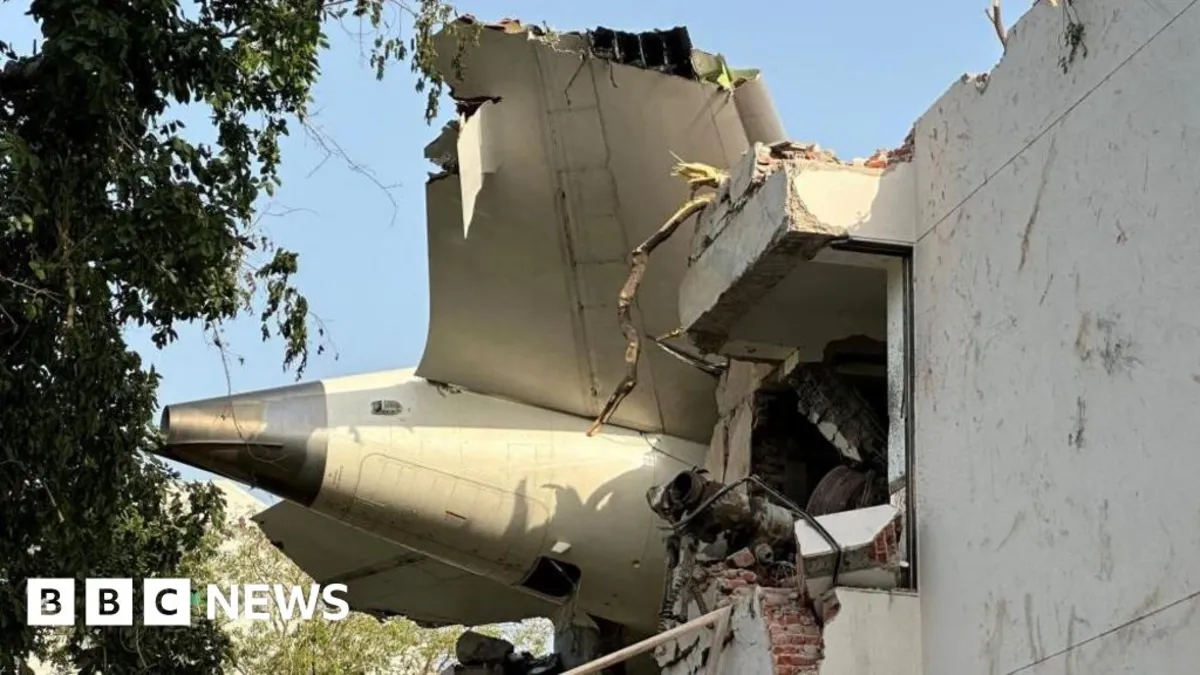
A recent preliminary report has revealed that the fuel supply to the engines of the Air India plane involved in a tragic crash was cut off moments after takeoff. This alarming discovery comes from recovered cockpit voice recordings, which indicate that one of the pilots questioned the other about the fuel cutoff. The response was that no such action had been taken. The incident occurred on June 12, when the London-bound Boeing 787-8 Dreamliner crashed less than a minute after taking off from Ahmedabad airport in western India, resulting in the loss of 260 lives, predominantly passengers. Remarkably, one British national survived the disaster.
The investigation, spearheaded by India's Aircraft Accident Investigation Bureau (AAIB), is continuing, with a more comprehensive final report anticipated in 12 months. Data retrieved from the flight recorder showed that both of the plane's fuel control switches—typically used to manage engine operations on the ground—were switched from the 'run' to the 'cutoff' position within seconds of each other shortly after takeoff. This critical error caused both engines to lose thrust, as outlined in the AAIB's report.
Following the fuel cutoff, the cockpit recordings capture a moment of confusion, with one pilot asking why the fuel had been switched off. The aircraft, piloted by Captain Sumeet Sabharwal and co-pilot Clive Kundar, experienced further complications as the fuel switches were later returned to their normal inflight position, attempting to reignite the engines. Although one engine managed to regain thrust, it was unable to reverse the aircraft's deceleration.
Just before the plane plunged and ultimately crashed into a building designated for doctors' accommodation, one of the pilots issued a mayday call. The crash caused a significant explosion, compounding the tragedy. Fortunately, the report confirms that both pilots had an adequate rest period prior to the ill-fated flight, which raises questions about the circumstances leading to the crash.
Initially, experts speculated that bird strikes might have contributed to the crash. However, the preliminary report clarified that no significant bird activity was documented in the vicinity of the aircraft's flight path. At this early stage of the investigation, the report states that there are no recommended actions for Boeing 787-8 Dreamliner and/or GE GEnx-1B engine operators and manufacturers, suggesting that no significant faults have been identified with either the aircraft or its engines.
While the investigation remains ongoing, the focus appears to be shifting toward the actions of the flight crew. This crash represents one of the worst aviation disasters in recent history, and the preliminary investigation has involved collaboration among the AAIB, Boeing, engine manufacturer GE, Air India, and aviation regulators from India, the UK, and the US.
This incident marks the first fatal crash of a 787-8 Dreamliner since its introduction into service in 2011. In the aftermath of the crash, investigators successfully recovered the aircraft's Enhanced Airborne Flight Recorders (EAFRs), also known as black boxes. These devices are invaluable for reconstructing the final moments of the flight, as they capture extensive flight data and cockpit audio, including pilot communications and ambient sounds.
The crash poses a significant setback for Air India, which is currently undergoing a business turnaround following its privatization by the Tata Group in 2022. The airline has announced reductions in international operations for its wide-body aircraft, grappling with several disruptions stemming from the incident.
The tragedy has reignited discussions about aviation safety in India. Earlier this month, India's civil aviation regulator completed enhanced safety checks on 26 out of Air India's 33 Dreamliners, finding no major concerns. In a recent interview with the BBC, the chief of the Directorate General of Civil Aviation (DGCA) defended India's safety record, asserting that it consistently outperforms the global average in aviation safety metrics, apart from two years marked by major accidents.
However, recent weeks have seen troubling reports highlighting maintenance oversights and training shortfalls, further intensifying scrutiny on the airline and the broader Indian aviation sector.